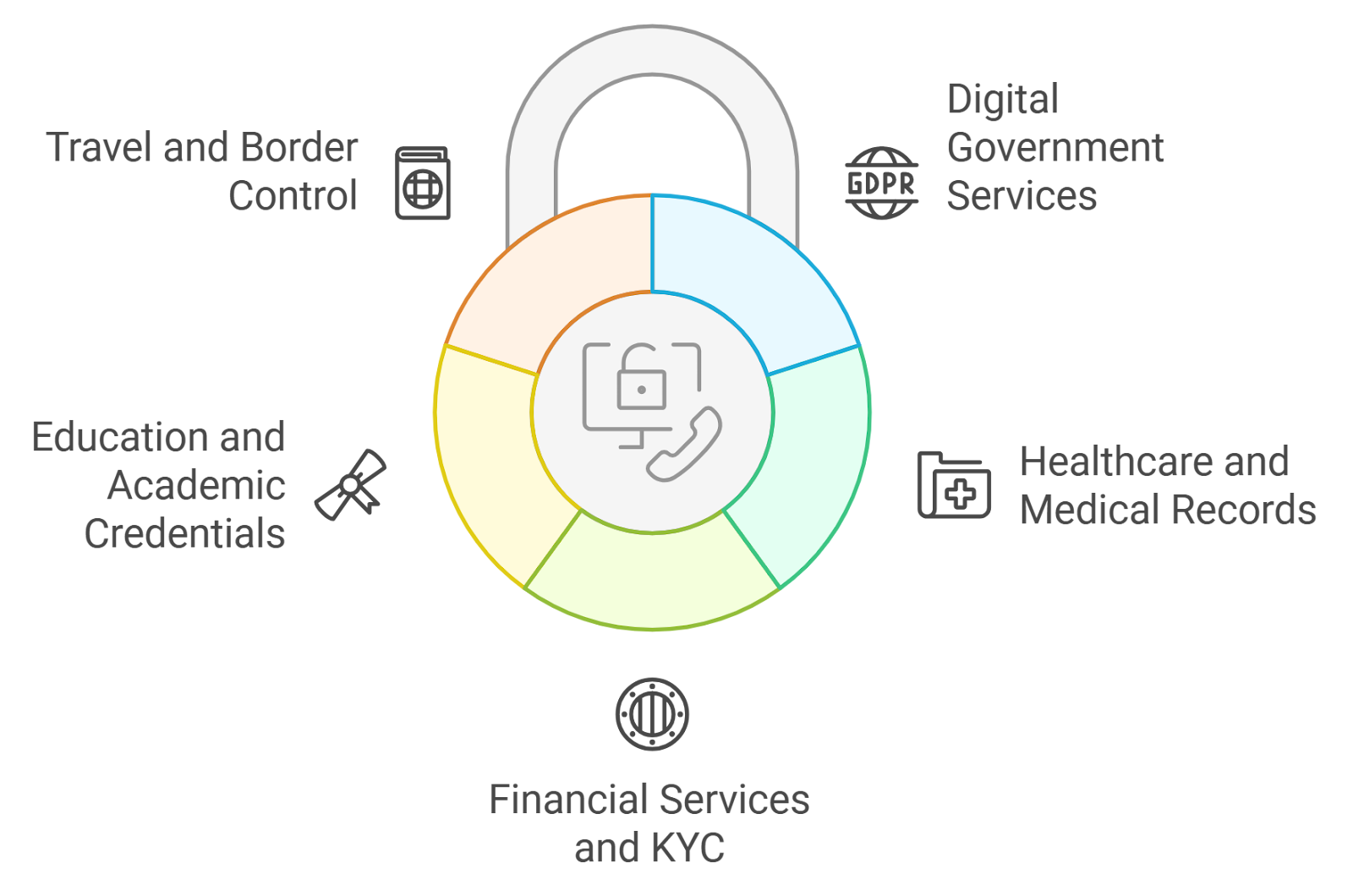
As Web3 matures, the demand for seamless, privacy-preserving identity solutions is accelerating. Onchain attestations for KYCed addresses have emerged as a transformative technology, enabling users and organizations to prove identity credentials directly on blockchain networks. These attestations are not simply a compliance checkbox; they are foundational to building interoperable, cross-chain digital identities that unlock new possibilities for decentralized finance (DeFi), tokenized assets, and permissioned communities.

The Mechanics of Onchain Attestations: From KYC to Cross-Chain Portability
Traditional Know Your Customer (KYC) processes are notorious for their friction and redundancy. Users must repeatedly submit sensitive documents to each new platform, while organizations shoulder the burden of data storage and regulatory audits. Onchain attestations disrupt this paradigm by allowing trusted entities, such as regulated KYC providers or decentralized verification protocols, to issue cryptographic proofs that a specific wallet address has completed verification.
These proofs are recorded on the blockchain as immutable attestations, which can be referenced by any compatible dApp or smart contract. The result? Portable blockchain credentials that travel with the user across ecosystems. Projects like Blockpass’s On-Chain KYC® 2.0 and Sumsub’s integration with Solana’s Attestation Service exemplify this shift toward reusable, verifiable digital identities.
The impact is profound. Once an address is attested as KYC-verified on one chain, that credential can be recognized across others, enabling truly cross-chain identity in Web3. This creates a unified layer of trust for everything from DeFi lending protocols to NFT allowlists and DAOs.
Zero-Knowledge Proofs: Privacy at the Core of Decentralized KYC Solutions
A critical challenge in digital identity is balancing regulatory compliance with user privacy. Zero-knowledge proofs (ZKPs) are now at the forefront of solving this dilemma. Platforms such as 0xKYC and zkMe leverage ZKPs to generate onchain attestations that confirm liveness or verification status, without ever exposing underlying personal data.
This privacy-centric approach means users can prove attributes like uniqueness or accredited investor status without revealing their name, address, or government ID number to every protocol they interact with. The use of ZKPs also mitigates risks associated with centralized honeypots of sensitive information, aligning with GDPR principles while still meeting Anti-Money Laundering (AML) requirements.
Ecosystem Interoperability: Linking Identities Across Chains and Protocols
The true power of onchain attestations lies in their interoperability. Modern decentralized KYC solutions are designed to work across major blockchains, Ethereum, Solana, Polygon, BNB Smart Chain, and even layer-2 rollups. This is made possible through standardized formats such as ERC-8004 for anchoring attestations and cross-chain communication protocols like Chainlink’s Automated Compliance Engine (ACE).
This ecosystem-wide compatibility allows users to move frictionlessly between dApps without repeating verifications or sacrificing privacy. For example:
- A user completes a one-time liveness check via 0xKYC on Polygon.
- The resulting attestation can be referenced by DeFi platforms on Ethereum or NFT marketplaces on Solana.
- If additional credentials are required, such as proof of residency or investor status, these can be layered onto the same wallet address via modular attestations.
This model not only streamlines onboarding but also reduces operational risk for projects by outsourcing compliance logic to robust attestation registries.
Business Impact: Streamlining Compliance Without Sacrificing User Experience
The practical implications for businesses and developers are significant. By integrating onchain attestation frameworks, platforms can:
- Dramatically reduce onboarding time by accepting existing verified credentials
- Avoid storing sensitive PII while still meeting regulatory mandates
- Create granular allowlists for token sales or gated communities based on composable attributes (e. g. , age verification and geographic restriction)
- Support global user bases without duplicating compliance infrastructure across jurisdictions
This evolution marks a transition from siloed identity silos toward a unified trust layer underpinning the future of Web3 interoperability and compliance.
What’s especially innovative about this shift is the ability for users to finally control their own digital identity lifecycle. Instead of being locked into a single provider or ecosystem, individuals can curate a portfolio of verifiable credentials, selectively disclosing only what’s necessary for each interaction. This not only improves privacy and security but also boosts user agency in the decentralized economy.
Developers, meanwhile, benefit from composable APIs and open standards that abstract away the complexities of compliance. With onchain attestations for KYCed addresses, platforms can plug into interoperable registries, automate allowlist management, and instantly verify eligibility for airdrops, token sales, or community governance, all without re-exposing users to onboarding friction or regulatory risk.
Challenges and Considerations: Scaling Trust Without Centralization
No transformative technology comes without trade-offs. The path to widespread adoption of cross-chain identity in Web3 relies on addressing several challenges:
- Attestation Quality: Not all KYC providers are created equal. The credibility of an attestation depends on the rigor of its issuer’s verification process and ongoing monitoring.
- Revocation and Expiry: Identities evolve, credentials may expire or need to be revoked (e. g. , due to fraud or regulatory changes). Robust standards for real-time revocation are critical to prevent outdated or compromised attestations from undermining trust.
- User Experience: While zero-knowledge proofs reduce data exposure, they introduce UX complexity. Seamless wallet integrations and clear consent flows are essential for mainstream adoption.
- Interoperability Gaps: As new chains emerge and standards evolve (ERC-8004, DIDs), ensuring universal compatibility remains an ongoing technical challenge.
Forward-thinking projects are already tackling these pain points with modular credential frameworks, real-time offchain/onchain sync mechanisms, and open governance models for attestation registries. The next frontier will see more granular control over which attributes are shared where, enabling use cases beyond finance: supply chain audits, healthcare access control, even decentralized social reputation systems.
Looking Ahead: The Future of Portable Blockchain Credentials
The convergence of decentralized KYC solutions with advanced cryptography is setting the stage for a new era in Web3 digital identity interoperability. As more dApps embrace onchain attestations for KYCed addresses, expect to see:
- Frictionless onboarding across DeFi protocols, users bring their verified credentials anywhere
- Dynamically composable allowlists, supporting nuanced compliance (jurisdictional restrictions, investor status) with minimal overhead
- Ecosystem-wide trust signals, where reputation and eligibility propagate across DAOs, NFT drops, governance votes, and more
- Reduced risk of identity theft or synthetic fraud, as attestations become tamper-proof and privacy-preserving by design
The ultimate vision: a world where your digital identity is as portable as your wallet address, verifiable anywhere but always under your control. For businesses building in this space, now is the time to explore solutions like Blockpass’s On-Chain KYC® 2.0 or Sumsub’s Solana integration. For developers seeking deep dives into cross-chain credentialing frameworks or practical guides on implementation strategies, this resource covers the technical details.
The infrastructure is here, and it’s evolving fast. By leveraging onchain attestations anchored by robust cryptography and open standards, we’re moving closer to a truly interoperable Web3 where trust scales without borders or silos.






